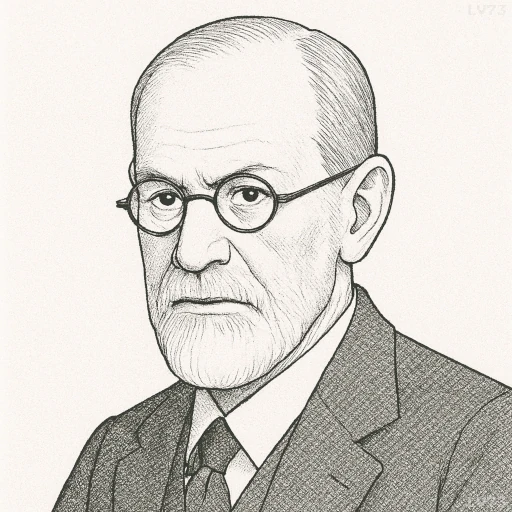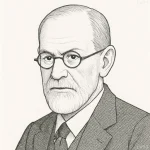“Man has, as it were, become a kind of prosthetic God. When he puts on all his auxiliary organs, he is truly magnificent; but those organs have not grown on him and they still give him much trouble at times.”

- May 6, 1856 – September 23, 1939
- Austrian
- Neurologist, Founder of Psychoanalysis
table of contents
Quote
“Man has, as it were, become a kind of prosthetic God. When he puts on all his auxiliary organs, he is truly magnificent; but those organs have not grown on him and they still give him much trouble at times.”
Explanation
This quote reflects Sigmund Freud’s view of technological advancement and its relationship to human nature. In calling man a “prosthetic God,” Freud recognizes that humans have extended their abilities far beyond natural limits through the creation of tools, machines, and systems. These “auxiliary organs”—everything from glasses to airplanes to computers—allow us to perform godlike feats: we can see distant galaxies, fly across continents, or manipulate matter at the atomic level. In this way, modern man appears “truly magnificent”.
However, Freud immediately tempers this celebration with a critical observation: these tools have not evolved as natural extensions of ourselves. Instead, they are external, artificial aids, and as such, they often fail us, cause discomfort, or introduce unforeseen complications. This speaks to a key concern in Freud’s time (the early 20th century), when industrialization and mechanization were rapidly transforming society. Freud’s psychoanalytic perspective emphasized the psychological strain caused by such rapid change, especially the tension between technological power and emotional or instinctual inadequacy.
In today’s context, this quote is even more relevant. From smartphones to artificial intelligence, we have increasingly sophisticated “prosthetics,” yet many people feel disconnected, anxious, or dependent on them. The trouble Freud speaks of can be seen in modern issues like digital addiction, climate change from industrial progress, or ethical dilemmas in biotechnology. His insight reminds us that technological greatness does not guarantee emotional or societal harmony, and that the human psyche may still struggle to keep pace with the tools it has created.
Would you like to share your impressions or related stories about this quote in the comments section?


